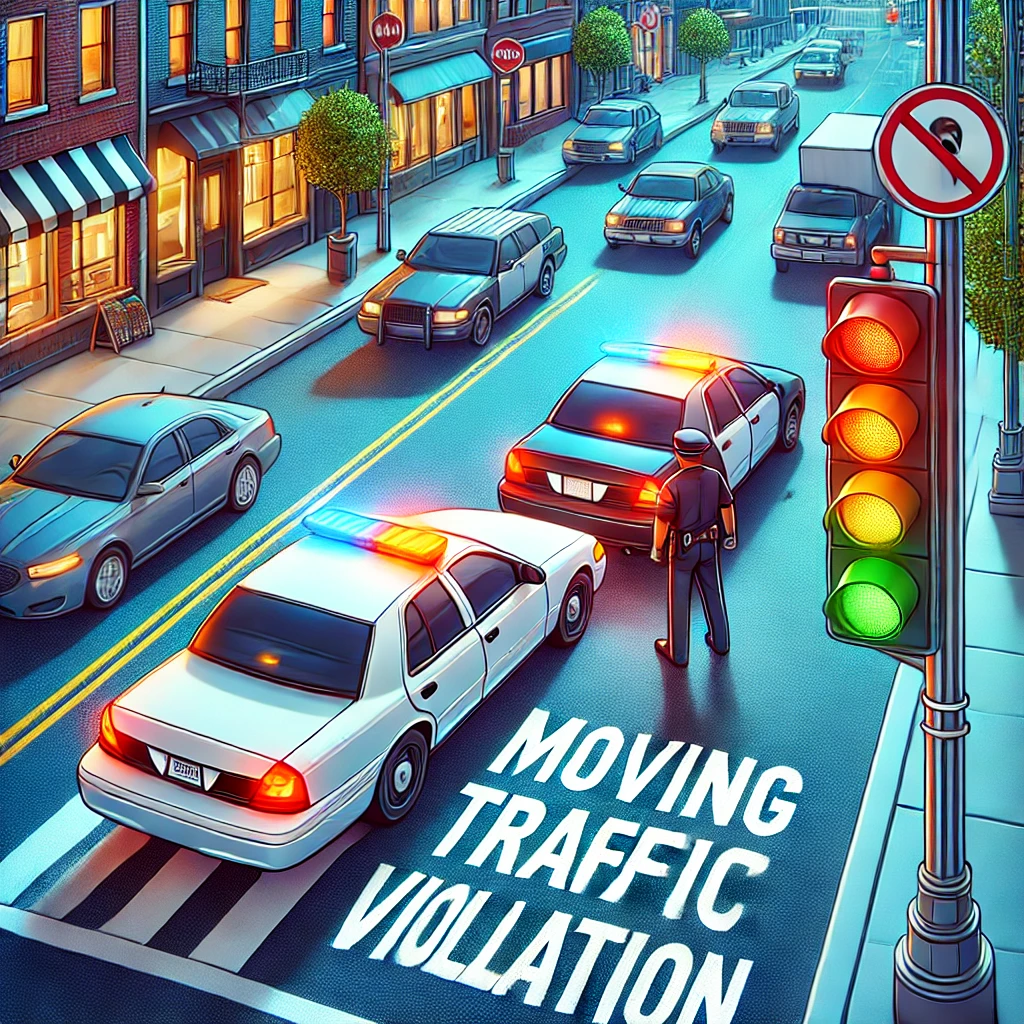Have you ever wondered what exactly a moving traffic violation is? Let’s dive into the details in a simple and friendly way to help you understand all about moving traffic violations, why they matter, and how they might affect you as a driver.
What Does “Moving Traffic Violation” Mean?
A moving traffic violation occurs whenever a vehicle law is broken by a moving vehicle. These violations can happen while the vehicle is driving on the road. Examples include speeding, running a red light, not stopping for a school bus, or making illegal turns. Essentially, if you break a rule of the road while your vehicle is in motion, that’s a moving violation.
Why Should You Care About Moving Traffic Violations?

It’s crucial to understand moving traffic violations because they directly impact road safety. When laws designed to keep traffic flowing safely are broken, it can lead to accidents and unsafe driving conditions. Moreover, getting a ticket for a moving violation might lead to fines, increased insurance rates, or even the loss of driving privileges depending on the severity of the offense and your driving history.
How Are Moving Traffic Violations Detected?
There are several ways that authorities detect moving traffic violations. Police officers can pull you over if they see you committing a violation. Additionally, many places use technology to help monitor roads. Red light cameras, speed cameras, and other automated systems can detect violations without a police officer being present.
What Happens If You Get a Moving Traffic Violation?
If you’re cited for a moving traffic violation, several things can happen. Typically, you’ll be given a ticket with a fine that you need to pay. In some cases, you might have the option to attend traffic school to remove the offense from your record. However, serious violations like reckless driving might require a court appearance, and repeated offenses can lead to harsher penalties.
How Can You Avoid Moving Traffic Violations?
Avoiding moving traffic violations is mostly about good driving habits. Always follow speed limits, traffic signals, and road signs. Make sure to stay alert and attentive to what’s happening on the road around you. Practicing defensive driving techniques can also help you avoid situations where you might be tempted to violate traffic laws.
What Should You Do If You Receive a Traffic Violation Ticket?
If you receive a ticket for a moving traffic violation, it’s important to handle it responsibly. Review the ticket to understand what you are being charged with and consider your options. If you believe the ticket was a mistake, you might be able to contest it in court. Otherwise, paying the fine or attending traffic school, if eligible, are your best options to resolve the issue.
What Are the Most Common Moving Traffic Violations?
There are several types of moving traffic violations that are commonly reported. Knowing what these are can help you stay vigilant and avoid them:
- Speeding: Going faster than the posted speed limit or too fast for current conditions.
- Running Red Lights: Entering an intersection after the traffic light has turned red.
- Failure to Stop at Stop Signs: Not coming to a complete stop at a stop sign.
- Improper Lane Changes: Changing lanes without signaling or checking for other vehicles.
- Driving Under the Influence: Operating a vehicle while impaired by alcohol or drugs.
How Can Moving Violations Affect Your Driving Record?
Moving traffic violations can have a significant impact on your driving record:
- Points on Your License: Many states use a point system where each violation adds points to your driver’s license. Accumulating too many points can lead to license suspension.
- Insurance Rates: Insurance companies often raise rates for drivers with violations, reflecting a higher risk of accidents.
- Permanent Record: Serious offenses might stay on your driving record permanently, affecting your driving privileges and insurance for years.
What Are Your Rights If You Are Stopped by the Police?
Knowing your rights during a traffic stop can help you handle the situation better:
- Right to Remain Silent: You have the right to remain silent about anything that might incriminate you.
- Right to Refuse a Search: You can refuse a search of your vehicle unless the officer has probable cause to believe it contains evidence of a crime.
- Right to a Lawyer: If you’re arrested, you have the right to consult a lawyer before speaking to the police.
- Polite Cooperation: While you have these rights, it’s also generally in your best interest to be polite and cooperative during any interaction with law enforcement.
By understanding these additional aspects of moving traffic violations, you can better manage your driving habits and responses if you find yourself stopped by the police. Safe driving not only helps you avoid fines and penalties but also contributes to the overall safety of all road users.
FAQs on Moving Traffic Violations
What is a defensive driving course?
A defensive driving course teaches safe driving strategies to prevent and properly handle traffic violations.
Can you get a traffic ticket in a parking lot?
Yes, certain moving violations like reckless driving can still be ticketed in parking lots.
Does a seatbelt violation count as a moving violation?
No, a seatbelt violation is generally considered a non-moving violation as it doesn’t involve the movement of the vehicle.